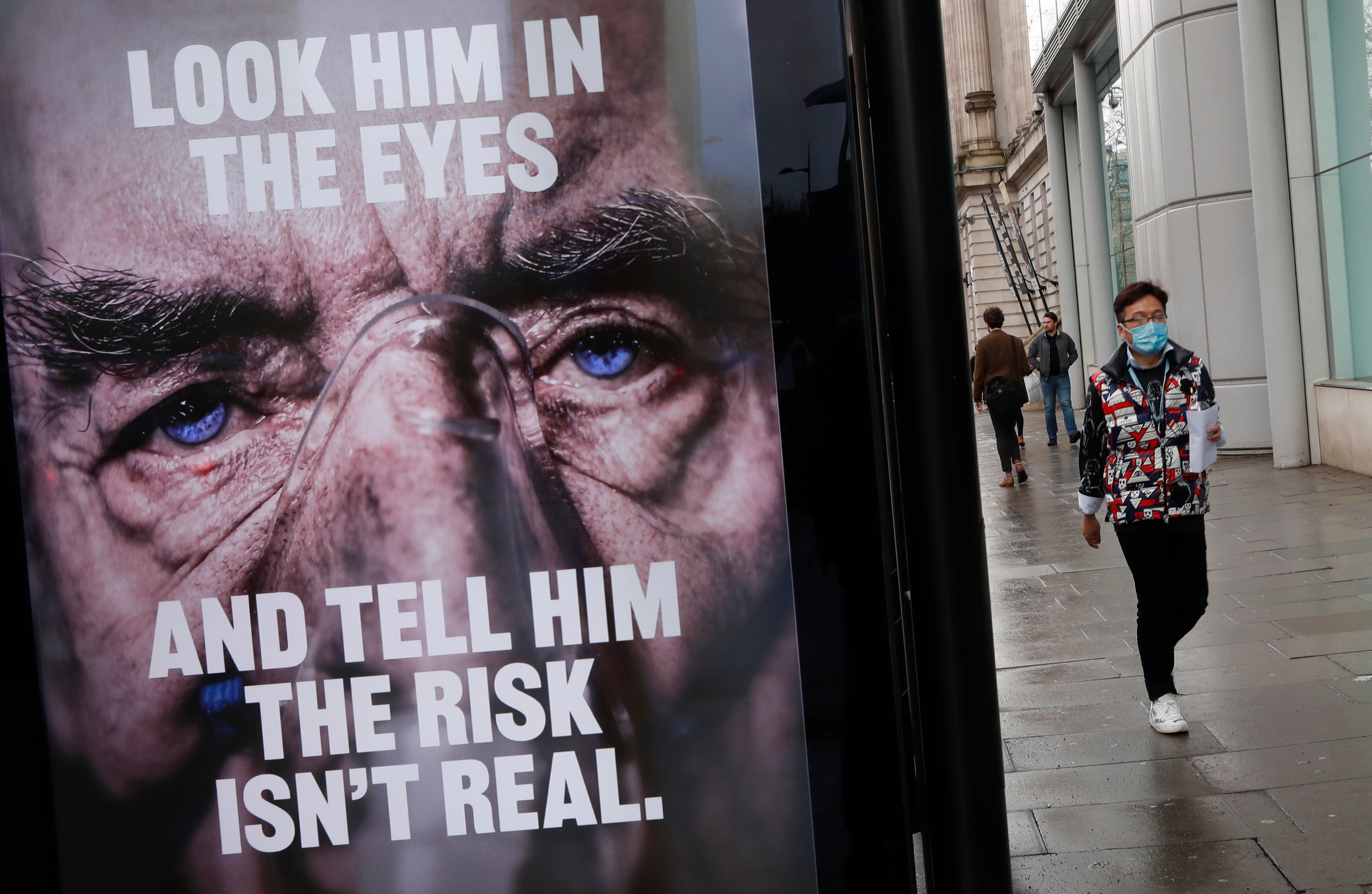UK: New study vindicates delaying 2nd virus vaccine dose
Britain’s Health Secretary Matt Hancock says a new study suggesting that a single dose of the AstraZeneca vaccine may reduce transmission of COVID-19 categorically supports the government’s strategy of taking more time between injections

Your support helps us to tell the story
From reproductive rights to climate change to Big Tech, The Independent is on the ground when the story is developing. Whether it's investigating the financials of Elon Musk's pro-Trump PAC or producing our latest documentary, 'The A Word', which shines a light on the American women fighting for reproductive rights, we know how important it is to parse out the facts from the messaging.
At such a critical moment in US history, we need reporters on the ground. Your donation allows us to keep sending journalists to speak to both sides of the story.
The Independent is trusted by Americans across the entire political spectrum. And unlike many other quality news outlets, we choose not to lock Americans out of our reporting and analysis with paywalls. We believe quality journalism should be available to everyone, paid for by those who can afford it.
Your support makes all the difference.Britain’s health chief said Wednesday that a new study suggesting that a single dose of the Oxford-AstraZeneca COVID-19 vaccine provides a high level of protection for 12 weeks supports the government’s strategy of delaying the second shot so more people can quickly be protected by the first dose.
Britain's decision has been criticized as risky by other European countries, but Health Secretary Matt Hancock said the study “backs the strategy that we’ve taken and it shows the world that the Oxford vaccine works effectively.”
Hancock's comments came after Oxford University released a study showing the vaccine cut the transmission of the virus by two-thirds and prevented severe disease.
The study has not been peer-reviewed yet and does not address the efficacy of the other vaccine currently in use in the U.K. made by Pfizer. Pfizer recommends that its shots be given 21 days apart and has not endorsed the U.K. government's decision to lengthen the time between doses.
But the Oxford research was greeted with excitement by U.K. officials under pressure to justify their decision to delay the second dose for up to 12 weeks.
“That reduction in transmission, as well as the fact there is no hospitalizations, the combination of that is very good news. And it categorically supports the strategy we’ve been taking on having a 12-week gap between the doses," Hancock told Sky News.
Britain has Europe's deadliest coronavirus outbreak, with more than 108,000 deaths, and is in its third national lockdown as authorities try to contain a new, more transmissible virus variant first identified in southeast England.
Other variants are also a concern. Public health officials are going door to door, trying to test all adults in eight targeted communities in England in an attempt to stop a new strain first identified in South Africa from spreading further.
So far 105 cases of the variant have been identified in the U.K., 11 of them in people with no links to overseas travel. Scientists say there is no evidence the South African variant is more serious than the original virus but it may be more contagious, and there are concerns that current vaccines may be less effective against it.
That is a worry as the U.K. races vaccinate its own population against the virus. Almost 10 million people have received the first of their two shots, including the bulk of people over 80 and those in nursing homes.
One of the lead researchers on the Oxford vaccine project, Dr. Andrew Pollard, said Oxford scientists believe the vaccine will continue to offer protection against new variants of COVID-19, although they are still waiting for data on that.
He said even if the virus adapts, “that doesn’t mean that we won’t still have protection against severe disease.’’
“If we do need to update the vaccines, then it is actually a relatively straightforward process. It only takes a matter of months, rather than the huge efforts that everyone went through last year to get the very large-scale trials run,” he told the BBC.
___
Follow all of AP’s pandemic coverage at https://apnews.com/hub/coronavirus- pandemic, https://apnews.com/hub/coronavirus-vaccine and https://apnews.com/UnderstandingtheOutbreak